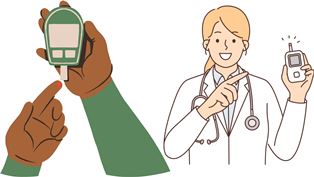Intermittent fasting has become a popular lifestyle choice for many seeking weight loss and improved health. However, beyond its benefits, there are concerns regarding its impact on heart health. This article delves into the relationship between intermittent fasting and the risk of heart attacks, providing comprehensive insights supported by scientific research.
Types of Intermittent Fasting
- 16/8 Method: Eating is restricted to an 8-hour window, followed by a 16-hour fast.
- 5:2 Diet: Normal eating for five days and limited calorie intake (about 500-600 calories) for two non-consecutive days.
- Eat-Stop-Eat: Fasting for 24 hours once or twice a week.
- Alternate-Day Fasting: Alternating between days of normal eating and fasting or very low-calorie intake.

Intermittent Fasting and Cardiovascular Health
Effects on Blood Pressure

Intermittent fasting has been shown to have positive effects on blood pressure, a significant risk factor for heart disease. Research indicates that fasting can lead to a reduction in systolic and diastolic blood pressure levels, thereby potentially lowering the risk of heart attacks and strokes.
Impact on Cholesterol Levels

Studies have demonstrated that intermittent fasting can improve cholesterol profiles by reducing LDL (low-density lipoprotein) cholesterol, known as “bad” cholesterol, and increasing HDL (high-density lipoprotein) cholesterol, or “good” cholesterol. Lower levels of LDL cholesterol and higher levels of HDL cholesterol are associated with a reduced risk of heart disease.
Blood Sugar and Insulin Sensitivity

Improved insulin sensitivity and better blood sugar control are other benefits of intermittent fasting. Stable blood sugar levels and enhanced insulin sensitivity reduce the risk of developing type 2 diabetes, which is a major risk factor for cardiovascular diseases, including heart attacks.
Mechanisms Linking Intermittent Fasting to Heart Health
Reduction of Inflammation

Chronic inflammation is a key contributor to many heart diseases. Intermittent fasting has been shown to reduce levels of inflammatory markers such as C-reactive protein (CRP). Lower inflammation levels contribute to healthier arteries and a reduced risk of heart attacks.
Autophagy and Cellular Health

Intermittent fasting promotes autophagy, a process where the body cleans out damaged cells and regenerates new ones. This cellular rejuvenation helps maintain healthy blood vessels and reduces the risk of atherosclerosis, a condition where plaque builds up in the arteries and can lead to heart attacks.
Weight Management

Maintaining a healthy weight is crucial for heart health. Intermittent fasting can be an effective tool for weight loss and management, reducing the strain on the heart and lowering the risk of heart disease. Obesity is a significant risk factor for heart attacks, and managing weight through intermittent fasting can contribute to overall cardiovascular health.
Scientific Evidence and Studies
Human Studies

Several human studies have explored the impact of intermittent fasting on heart health. For instance, a study published in the Journal of the American Heart Association found that intermittent fasting can lead to improvements in cardiovascular risk factors such as body weight, blood pressure, and cholesterol levels. Another study in Obesity Research & Clinical Practice indicated that intermittent fasting could reduce the risk of coronary artery disease by improving metabolic health.
Animal Studies

Animal studies have also provided insights into the benefits of intermittent fasting on heart health. Research on rodents has shown that intermittent fasting can protect against heart disease by improving heart function, reducing oxidative stress, and enhancing metabolic flexibility.
Potential Risks and Considerations
Nutrient Deficiencies

While intermittent fasting offers several benefits, it is essential to ensure that nutrient intake is adequate during eating periods. Skipping meals or prolonged fasting without proper planning can lead to nutrient deficiencies, which can negatively affect heart health and overall well-being.
Overeating During Eating Windows

Another potential risk is overeating during the eating windows, which can negate the benefits of fasting. It is important to maintain a balanced diet rich in fruits, vegetables, lean proteins, and whole grains to support heart health.
Individual Variability
Intermittent fasting may not be suitable for everyone. Individuals with pre-existing health conditions, such as diabetes or heart disease, should consult their healthcare provider before starting an intermittent fasting regimen. Personalized approaches and professional guidance are crucial for safely implementing intermittent fasting.
FAQs on Intermittent Fasting and Heart Health
Intermittent fasting can have both positive and negative effects on heart health, depending on how it is practiced and individual health conditions. Benefits of intermittent fasting include reduced blood pressure, improved cholesterol levels, better blood sugar control, and weight management, all of which can lower the risk of heart issues. However, potential risks include nutrient deficiencies and overeating during eating windows. Individuals with pre-existing heart conditions should consult a healthcare provider before starting intermittent fasting to ensure it is safe for their specific circumstances.
Several factors can increase the risk of a heart attack, including:
High Blood Pressure: Increased pressure can damage arteries, making them more susceptible to plaque buildup.
High Cholesterol Levels: Excess LDL cholesterol can lead to plaque formation in the arteries.
Smoking: Damages the lining of the arteries and increases the risk of plaque buildup.
Diabetes: Poorly controlled blood sugar can damage blood vessels.
Obesity: Excess weight puts additional strain on the heart.
Sedentary Lifestyle: Lack of physical activity contributes to poor cardiovascular health.
Unhealthy Diet: Diets high in saturated fats, trans fats, and cholesterol can increase the risk of a heart attack.
Family History: Genetic predisposition can play a role in heart disease.
Stress: Chronic stress may contribute to heart disease by increasing blood pressure and other risk factors.
To reduce the risk of a heart attack, consider the following strategies:
Maintain a Healthy Diet: Eat a balanced diet rich in fruits, vegetables, whole grains, lean proteins, and healthy fats.
Exercise Regularly: Aim for at least 150 minutes of moderate aerobic activity or 75 minutes of vigorous activity each week.
Manage Blood Pressure: Keep blood pressure in check through diet, exercise, and medication if needed.
Control Cholesterol Levels: Monitor and manage cholesterol levels through diet, exercise, and medications if necessary.
Quit Smoking: Seek help to quit smoking and avoid exposure to secondhand smoke.
Maintain a Healthy Weight: Achieve and maintain a healthy weight through diet and exercise.
Manage Diabetes: Keep blood sugar levels under control if you have diabetes.
Reduce Stress: Practice stress-reducing techniques such as meditation, yoga, or deep breathing exercises.
Limit Alcohol: Drink alcohol in moderation, if at all.
Certain foods are particularly beneficial for heart health and can help prevent heart attacks, including:
Fruits and Vegetables: Rich in vitamins, minerals, and antioxidants. Examples include berries, leafy greens, and citrus fruits.
Whole Grains: Foods like oats, brown rice, and whole wheat bread are high in fiber and beneficial for heart health.
Nuts and Seeds: Almonds, walnuts, flaxseeds, and chia seeds provide healthy fats and omega-3 fatty acids.
Fatty Fish: Salmon, mackerel, and sardines are high in omega-3 fatty acids, which reduce inflammation and improve heart health.
Legumes: Beans, lentils, and chickpeas are high in fiber and protein, and help manage cholesterol levels.
Olive Oil: A healthy fat that can reduce bad cholesterol levels and inflammation.
Avocado: Contains monounsaturated fats that are heart-healthy and beneficial for reducing bad cholesterol.
Dark Chocolate: In moderation, dark chocolate with high cocoa content (70% or more) can benefit heart health due to its antioxidant properties.
Berries, such as blueberries, strawberries, and raspberries, are particularly beneficial for heart health. They are high in antioxidants, fiber, and vitamins that help reduce inflammation, lower blood pressure, and improve cholesterol levels. Citrus fruits, like oranges and grapefruits, are also excellent due to their high vitamin C content, which helps reduce heart disease risk. Additionally, pomegranates are known for their heart-healthy properties, including reducing cholesterol and preventing plaque buildup in arteries.
Both a heart-healthy diet and intermittent fasting have their own benefits for cardiovascular health, and the best approach depends on individual needs and preferences.
A heart-healthy diet focuses on consuming nutrient-dense foods that are low in unhealthy fats, sodium, and added sugars. It typically includes plenty of fruits, vegetables, whole grains, lean proteins, and healthy fats such as those found in nuts, seeds, and olive oil.
Conclusion
Intermittent fasting presents a promising approach to improving cardiovascular health by influencing various risk factors associated with heart disease. By reducing blood pressure, improving cholesterol levels, enhancing insulin sensitivity, and promoting weight management, intermittent fasting can lower the risk of heart attacks. However, it is essential to approach intermittent fasting with a well-balanced diet and professional guidance to maximize its benefits and minimize potential risks.
For those considering intermittent fasting, understanding its effects on heart health is crucial. Ongoing research continues to uncover the complexities of how intermittent fasting interacts with cardiovascular health, and staying informed is key to making the best health decisions.





